Scholarship Awards (Academic Year 2025-26)
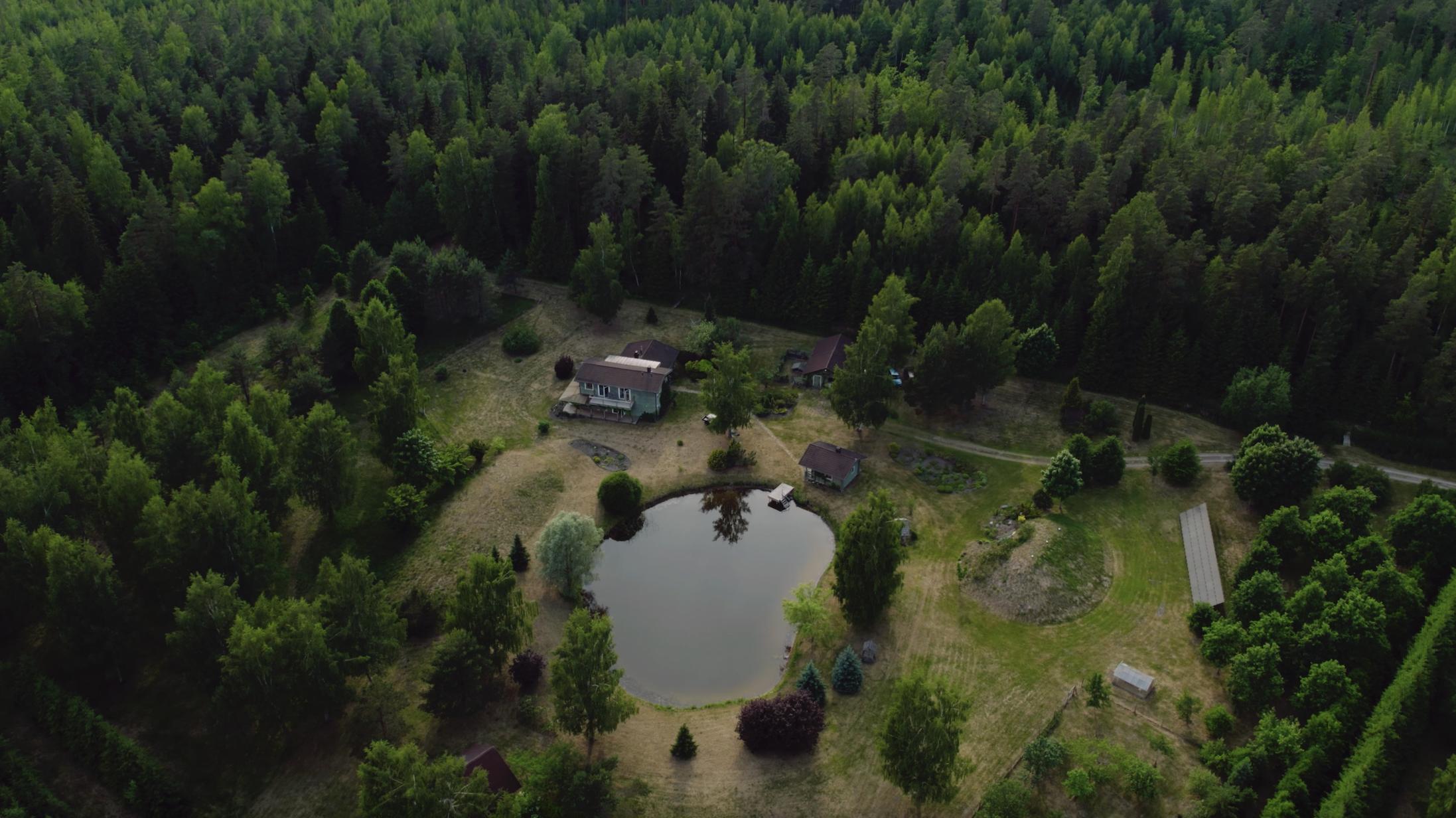
Theda Rehbock Philosophy Residency 2025 Scholarship Awards
We are thrilled to announce the recipients of the prestigious Theda Rehbock Philosophy Residency 2025/26 scholarships.
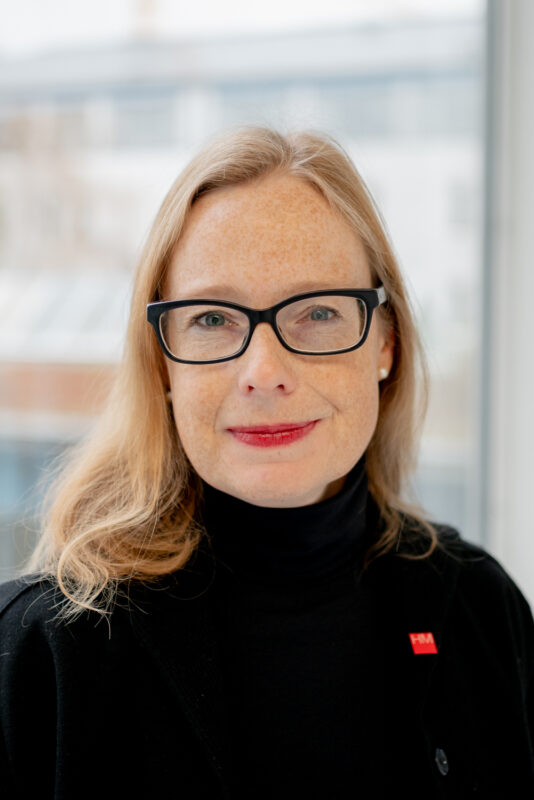
Prof. Dr. Katja Stoppenbrink
Professor of Ethics in the Social Professions at the Department of Applied Social Sciences at Munich University of Applied Sciences (Hochschule München HM)
Project: Ethics in Early Childhood Education – Towards a Principle-Based Framework for Educational Practice
During my residency at Susimetsa I will work on a systematic ethics of early childhood education, addressing a major gap in both applied ethics and childhood pedagogy. Grounded in educational philosophy and informed by empirical perspectives, my project relies on a principle-based approach that integrates fundamental moral concepts such as human dignity, human rights, and children’s rights. Extending beyond classical principles of non-maleficence, beneficence, justice, and respect for autonomy, it adds professional self-care, solidarity, and participation as key dimensions of professional ethics in early childhood education.
By linking these principles to pedagogical practice, the project explores ethical aspects of professional identity, educator–child–parent/guardian relationships, and institutional responsibility. Thus, I would like to contribute to establishing educational ethics as an independent field within early childhood education and strengthen ethical awareness in professional practice.
Residency Period: November 7th – November 21th 2025
Read about Katja’s residency experience at Susimetsa HERE.

Dr. Jamie Davies
The Global Centre for Advanced Studies
Project: The Exhaustion (or Exhausting) of Being: A Study of Ontological Idleness
For the duration of my residency, I will be starting work on an extensive investigation into what I am provisionally calling the exhaustion, or exhausting, of Being. In the wake of the philosophical work of Giorgio Agamben and other contemporary thinkers such as Jean-Luc Nancy, Emmanuel Levinas, and Byung-Chul Han, it is perhaps not impertinent to suggest that exhaustion, or idleness, is worthy of full ontological consideration. Thought in this manner, however, exhaustion would be a modality of existence which immanently brings ontology as operativity to a standstill, to its own sudden idleness. This is because the exhaustion of the actual, if positioned as an origin, cannot but stall the activity of being.
Devoid, therefore, of a subject to which being qua exhausted would be represented, the ‘is’ determining being from within an operative ontology would be only an exhausting (in the present participle); an exposing of the uselessness of being, not simply its purposelessness, but its pure mediality. To think being thus, as an exhausting, an emptying out of substance and effectivity, not only brings the productivity and activity of being to a halt, but it offers also the unique opportunity to consider the propensity for happiness that lies in what Walter Benjamin once called ‘authentic idleness;’ the idleness of a life which is not a work but its own exhausting exposure.
Residency Period: November 9th – November 15th 2025
Read about Jamie’s residency experience at Susimetsa HERE.
Ana Fayos

Universidad de Valencia
My topic of study is patient autonomy. This concept was introduced by Beauchamp and Childress in their Principles of Biomedical Ethics, evolved in Diego Gracia’s Foundations of Bioethics and other authors. It has been also incorporated into the regulations of medical care, clinical trials, and new technologies. I will analyze the patient’s situation in the different scenarios of the doctor-patient relationship already described by Alasdair MacIntyre (medical paternalism, applied medicine and the bureaucratic era), up to the current shared decision model (Laín Entralgo), in which autonomy is differentiated from idiosyncrasy (Adela Cortina).
Residency Period: November 9th – 15th, 2025
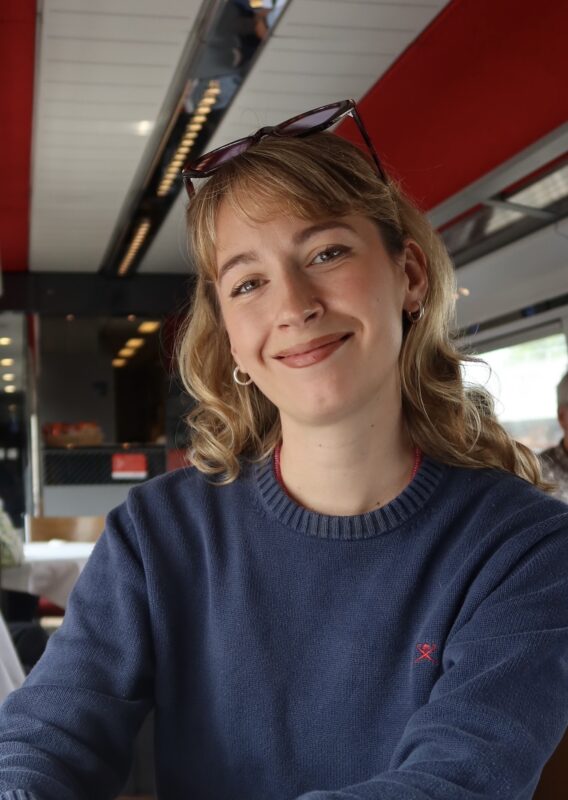
Agnès Baehni
University of Geneva
In the last two decades, philosophers have argued that belief can be a locus of moral responsibility, laying the groundwork for an ethics of belief (Hieronymi 2004; Smith 2005). The next step has been to explain what makes a certain belief morally objectionable. The growing literature on doxastic wronging, i.e., the way we can wrong others with our beliefs, illustrates this progression well and rests on the assumption that we can be morally responsible for what we believe (Basu 2019). In other words, it seems to be a prerequisite of a particular belief’s immorality that belief is the kind of things for which one can be responsible. The case of belief provides a useful point of comparison for another mental state currently undergoing a similar process of moralization: emotions. Here, however, the literature has arguably moved too quickly. Rather than first establishing that we can be responsible for our emotions, some recent work has jumped directly to claims that we have emotional obligations (Attie-Picker 2021), or that our emotions can be unfair (Blatter 2025). These claims may well be correct, but in the absence of a prior account of responsibility for emotions, they rest on shaky ground. My research project aims to address that foundational issue.
Read about Agnès’ residency experience at Susimetsa HERE.
Shervin Mirzaeighazi
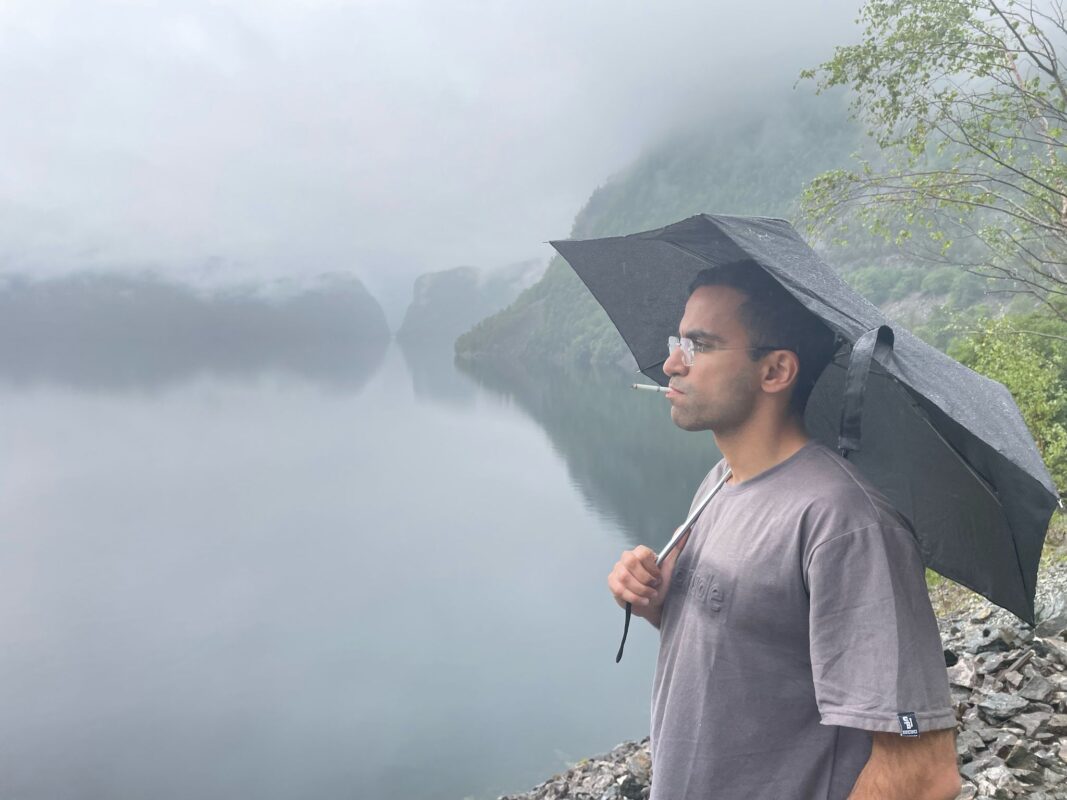
Lund University
My research focus currently is on providing a naturalistic account of moral objectivity. A central challenge in philosophy is to reconcile our lived experience of a world rich with value—the ‘manifest image’—with the ‘scientific image’ of a world consisting of physical facts and causal processes. My project directly addresses this challenge by advancing a naturalistic account of moral judgment and objectivity. I use the most promising historical framework for this task, Humean projectivism, by grounding it for the first time in the empirical findings of contemporary cognitive science. David Hume proposed that when we make moral judgments, we are “gilding and staining all natural objects with the colours, borrowed from internal sentiment”. That is, we project our feelings of approval or disapproval onto the world, experiencing them as objective properties of actions or characters. While this projectivist idea has created a strong philosophical tradition, particularly in the form of expressivism, there is still a research gap: the fundamental psychological and cognitive mechanism of projection itself has not been explained. My research objective is to ground projectivism in concrete models of mind-reading and embodied cognition.
Read about Shervin’s residency experience at Susimetsa HERE.

Elsa Magnell
PhD Candidate in Practical Philosophy, Department of Philosophy, Lund University
Apologies are essential for our moral life. We apologise for forgetting a friend’s birthday, for accidentally breaking our mother’s coffee mug, and for cheating on our partner. We sometimes also expect collective entities – such as a state or a corporation – to apologise to groups who have suffered past injustices. But what are we doing when offering these, quite different, apologies? Can an agent owe an apology for something she is not morally responsible for? Can a collective even apologise? Given the importance of apologies within our moral community, the primary aim of my project is to answer such questions and explore the philosophy of apologies. I do so mainly by defending a functionalist account of interpersonal, moral apologies and then arguing that this account can be fruitfully generalised to non-moral apologies, epistemic apologies, and collective apologies – thus offering a way towards a unified account of apologies.
Read about Elsa’s residency experience at Susimetsa HERE.
Dr Jiwon Kim
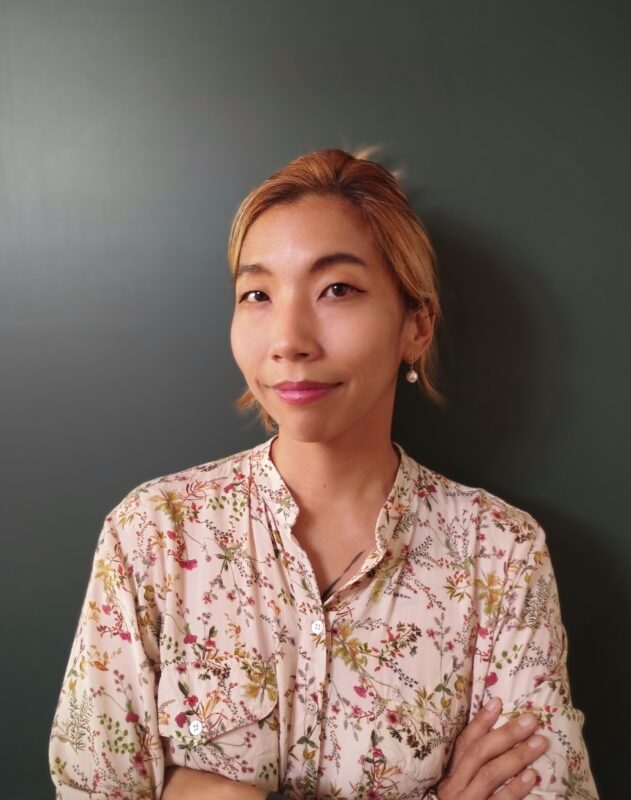
Lund University
What if language could harm people who never hear it? My current project explores how certain types of speech, such as commands, advice or slogans, establish ‘norms that travel’. A phrase such as ‘Never take a woman’s “no” seriously’ may start out as an in-group directive, but once it has been repeated and stabilised within online echo chambers, it can influence how outsiders are treated in everyday life. I refer to this as ‘directive third-party harm’: when speech within one group legitimises disregard, silencing or exclusion elsewhere. Drawing on insights from speech act theory, feminist philosophy of language and social epistemology, the project aims to develop three diagnostic tools — the Standing, Licensing and Spillover tests — to distinguish between directives that foster solidarity and those that perpetuate inequality. By analysing how norms circulate through echo chambers, social media algorithms, and interactions with large language models, the project offers new ways to understand how speech can perpetuate injustice without intent and silence without contact.
Residency Period: November 25th – 30th, 2025
Read about Jiwon’s residency experience at Susimetsa HERE.

Chagajeg Soloukey
Doctor, Researcher, Philosopher; MD/PhD-Candidate at the Department of Neurosurgery, Erasmus Medical Center’s Sophia Children’s Hospital, Rotterdam, the Netherlands
Project: Professional Proximity in Medicine
This residency explores “professional proximity”; a phenomenological approach to the doctor-patient relationship developed by Soloukey within her multi- and interdisciplinary consortium of clinicians, philosophers, and researchers. With the term, Soloukey calls for healthcare professionals to stay closely and reflectively attuned to patients’ lived experience. Set in the context of her PhD theme, namely maternal-fetal neurosurgical decision-making for spina bifida, the project examines how professional proximity can bridge the gap between modern technical medical possibilities and patients’ embodied realities. During the residency, Soloukey will engage with Theda Rehbock’s work on the patient-practitioner relationship to deepen this concept, concretely advancing several manuscript drafts for her PhD dissertation as well as her debut book manuscript on the topic. Ultimately, Soloukey aims to develop professional proximity as both a rigorous theoretical framework and a transformative practical attitude for healthcare providers navigating complex clinical and existential terrain with patients.
Residency Period: November 27th – December 12th, 2025
Read about Chagajeg’s residency experience at Susimetsa HERE.
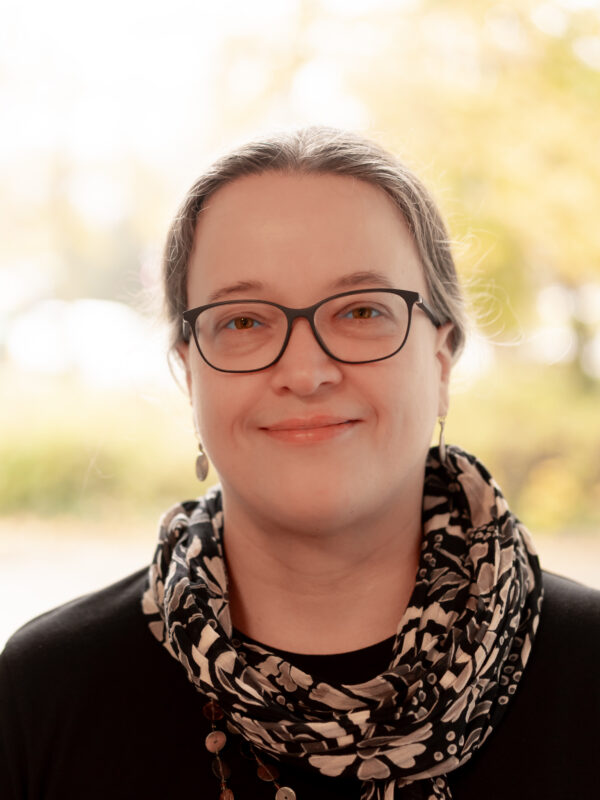
Eva Buchholz, M.A.
Independent Researcher from Berlin, Germany
Project: Positionality and perspective: Reflections on the role(s) of patient scientists, peer
researchers and people with lived experience in medical and health research
For several years, participatory approaches within medical and health research have been increasing in significance and frequency of use. In a very general sense, participatory research can be understood as a way of doing research together with representatives of the group being studied or affected. From the perspective of a person with lived experience, e.g. the experience of living with a chronic health condition or disability, it is about taking part in research, contributing intellectually and being included rather than being the mere subject of research. While academics have developed a broad range of methods and some methodological considerations for the involvement of ‘patient and public’ into health research during the past years, ‘theory’ (i.e. conceptual frameworks derived from philosophical foundations) has yet to catch up.
During my philosophical residency at Susimetsa, I want to examine the concepts of ‘positionality’ and ‘perspective’, drawing partly on discussions in Women’s and Gender Studies and Diversity Studies, and to explore, how these terms may be applied to participatory research settings. I aim to capture ‘positionality’ as a sense of situatedness based on experience and interests that affect people as a whole, including their thoughts, feelings and behaviour. In the context of a given research framework, this may enable or disable the expression of certain perspectives. My focus is on the conceptual and methodological implications for future academic participatory research.
Residency Period: November 30th – December 12th, 2025
Read about Eva’s residency experience at Susimetsa HERE.
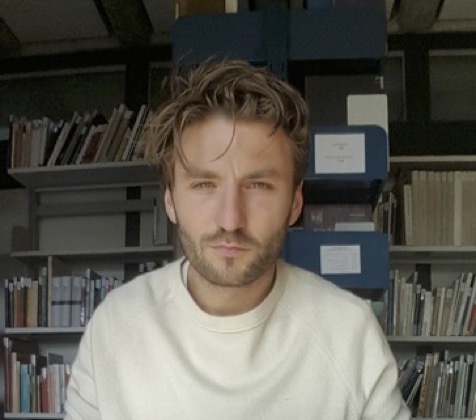
Dr. Haziran Zeller
Germany
Compared with other periods in the life of Theodor W. Adorno, the years he spent in England (1934–1937) have received relatively little attention. During this time, Adorno was enrolled at Oxford, where he wrote a dissertation under the supervision of Gilbert Ryle. My research focuses on this collaboration: Did working with Ryle influence Adorno’s philosophy? Conversely, was Adorno himself involved in the emerging analytic philosophy of the time? These are the kinds of questions I seek to address, both historically and systematically.
Residency Period: November 30th – December 12th, 2025
Read about Haziran’s residency experience at Susimetsa HERE.
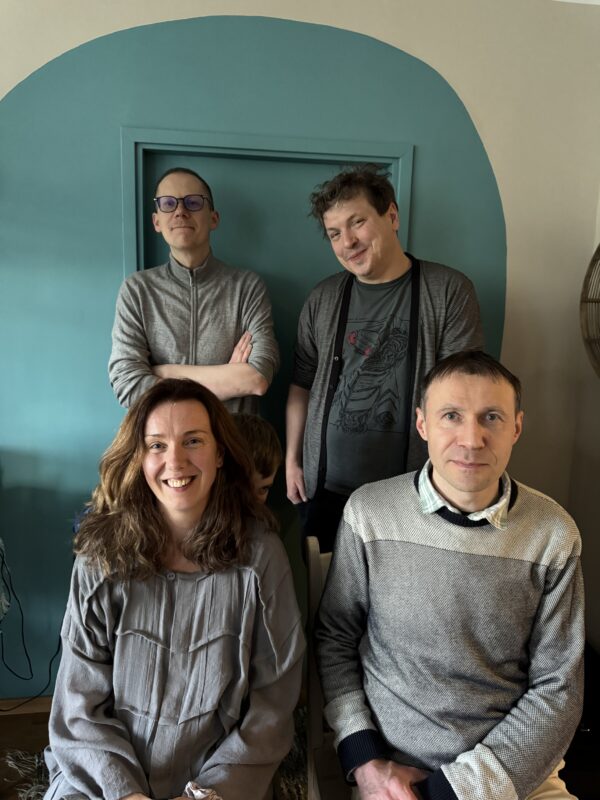
Roomet Jakapi, Associate Professor of History of Philosophy, University of Tartu
Toomas Lott, Researcher, Uppsala University
Riin Sirkel, Associate Professor of Ancient Philosophy, University of Tartu
Uku Tooming, Associate Professor of Theoretical Philosophy, University of Tartu
Project: Imagination in Cognition: Contemporary and Ancient Perspectives
The aim of our residency is to advance our research project “Imagination in Cognition: Contemporary and Ancient Perspectives”. Our first goal is to co-author a paper on the role of imagination in the Stoic practice of premeditatio malorum (“pre-meditation of evils”), examining how this spiritual exercise should be practiced and what cognitive abilities it engages. We will explore the apparent tension between imagination’s positive role in this practice and the Stoics’ explicit warnings about imagination leading us astray, proposing a dual account that involves both visual imagining and cognitive work with judgments. Our second goal is to begin organizing a major international conference on the cognitive roles of imagination in ancient philosophy, planned for 2026 in Tartu. During the residency, we will select invited speakers, draft a call for papers, and finalize the organizational planning for this event.
Residency Period: January 15th – 22nd, 2026
Read about Roomet’s, Toomas’, Riin’s & Uku’s residency experience at Susimetsa HERE.

Elizabeth Frissell
University of Nottingham
Project: Stoicism & Acceptance and Commitment Therapy: How ancient practices can improve modern mental health
This project approaches the ethical texts of Stoicism – a Hellenistic school of philosophy – as informing a way of life, and more specifically the good life. The primary aim of this project is to modernize Stoic beliefs and practices so that they may be used in Acceptance and Commitment Therapy (ACT). ACT is a growing third-wave psychotherapy that focuses on accepting one’s circumstances and is used to help those suffering from chronic health conditions, substance abuse, and grief. Thus, this project both evaluates Stoic ideas and practices – such as their theory of emotions and premeditatio malorum (negative visualization) – and argues that these ideas and practices can have positive utility today in psychotherapeutic settings.
Residency Period: January 15th – 29th, 2026
Read about Elizabeth’s residency experience at Susimetsa HERE.
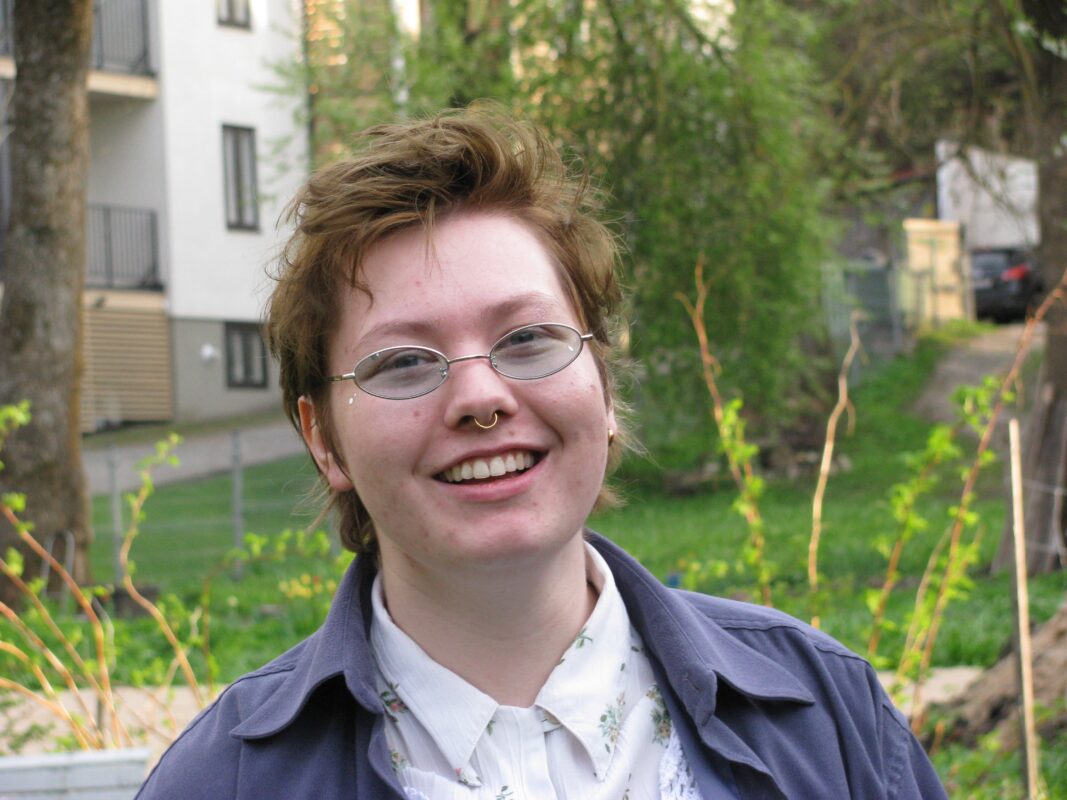
Evita Bukonte
Master’s student, University of Tartu, Estonia
Project: Epistemic Injustice in the Transgender and Gender Diverse Patient-Doctor Relationship
At the Susimetsa Philosophicum, I will be working on my master’s thesis, with the central focus on the Transgender and Gender Diverse (TGD ) Patient-Doctor Relationship. I am analysing how knowledge and power affect this relationship and how both are involved in the creation of the other. The patient-doctor relationship prerequisites asymmetry (the physician as more knowledgeable), but through epistemic lacunae, a commonality, especially with TGD patients, is an epistemic asymmetry swayed to the side of the patient as more knowledgeable. This creates mistreatment and unjust treatment. To analyse the phenomena, I am using interviews with TGD people from Latvia and theories of epistemic injustice, first coined by Miranda Fricker.
Residency Period: January 30th – February 6th, 2026

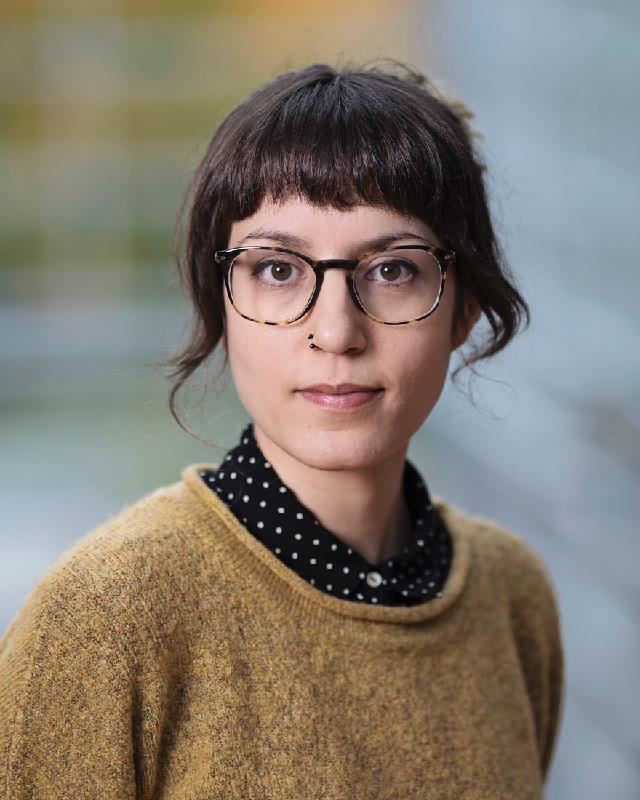
Dr. Björn Lundgren, Centre for Philosophy and AI Research, Friedrich-Alexander-Universität Erlangen-Nürnberg, Erlangen, Germany; Institute for Futures Studies, Stockholm, Sweden
Dr Virginia Conde Ruiz, Research group for applied neurophysiology, Oslo University Hospital, Oslo, Norway
Project: What is the aim of higher education, now and in the future?
The advent of commercialised generative artificial intelligence (genAI) systems seems to have taken the educational sector by storm. This is reflected in the rapid implementation of genAI-based tools across higher education institutions, alongside partnerships between said institutions and companies offering these tools. Likewise, the rapid adoption of genAI has prompted policy debates globally. The veering of higher education towards genAI adoption does not only raise questions of how, if at all, higher education ought to change in light of these technologies, but it brings to light an old standing debate of what the aim of higher education ought to be. On the one hand, there are traditional intellectual ideals of promoting learning, intellectual character, curiosity, critical thinking and so forth. On the other hand, there are arguments that suggest that education ought to prepare individuals for the labor market, and align itself and its curricula to current labor market needs that focus on specific skills. In this project we will focus on the intertwining between the purpose(s) of higher education and the pressures to generate outcomes within economies of knowledge, as well as on the tensions between so-called “vocationalism” and “intellectualist” ideas of how higher education should serve societies and individuals. Moreover, we will explore the trends of genAI adoption in higher education through the lens of the arguments presented above, in order to place these technological shifts within a wider sociological and philosophical context.
Residency Period: February 1st – 13th, 2026
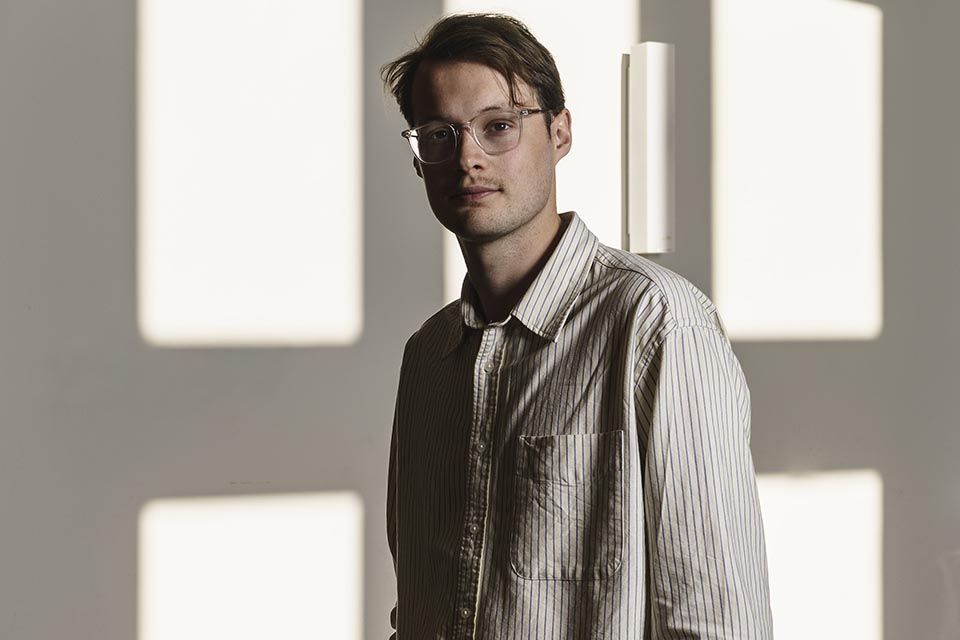
Beer Pieterjan Prakken
PhD Candidate at the University of Groningen (the Netherlands)
Project: Virtue Ethics, Humor, and Play: An Ethical Challenge to Dark Play Extremism
The rise of the populist radical right has made humor and play central to political radicalization. Far right political figures like Donald Trump and Nick Fuentes exploit jokes, trolling, and irony to destabilize democratic discourse (e.g., Gaufman & Ganesh, 2024), think about Trump ‘joking’ about running in 2028, buying Greenland, or locking up Hillary Clinton. Supporters oscillate between treating these utterances as serious threats or as mere jokes, producing a hybrid political culture where play and seriousness collapse into each other (e.g., Esposito, 2025; Prakken, 2026). This far right humorous phenomenon can be described as dark play: covert, deceptive forms of play that thrive on ambiguity, sadistic pleasure, and transgression. Unlike Huizinga’s Homo Ludens (1938) ideal of liminal “fair play,” dark play instrumentalizes humor and dissolves ethical boundaries. The normative challenge is to articulate how citizens and democratic cultures can distinguish virtuous from vicious forms of play (e.g., Deen, 2018). If political humor today is both omnipresent and ethically ambiguous, my central research question is whether a normative framework can be articulated. Current deontological or utilitarian models are ill-suited to capture humor’s ambiguity. I therefore turn to virtue ethics, in particular Aristotle’s eutrapelia and connect it to Huizinga’s ideal “fair play” to form an ethical response.
Residency Period: February 1st – 13th, 2026
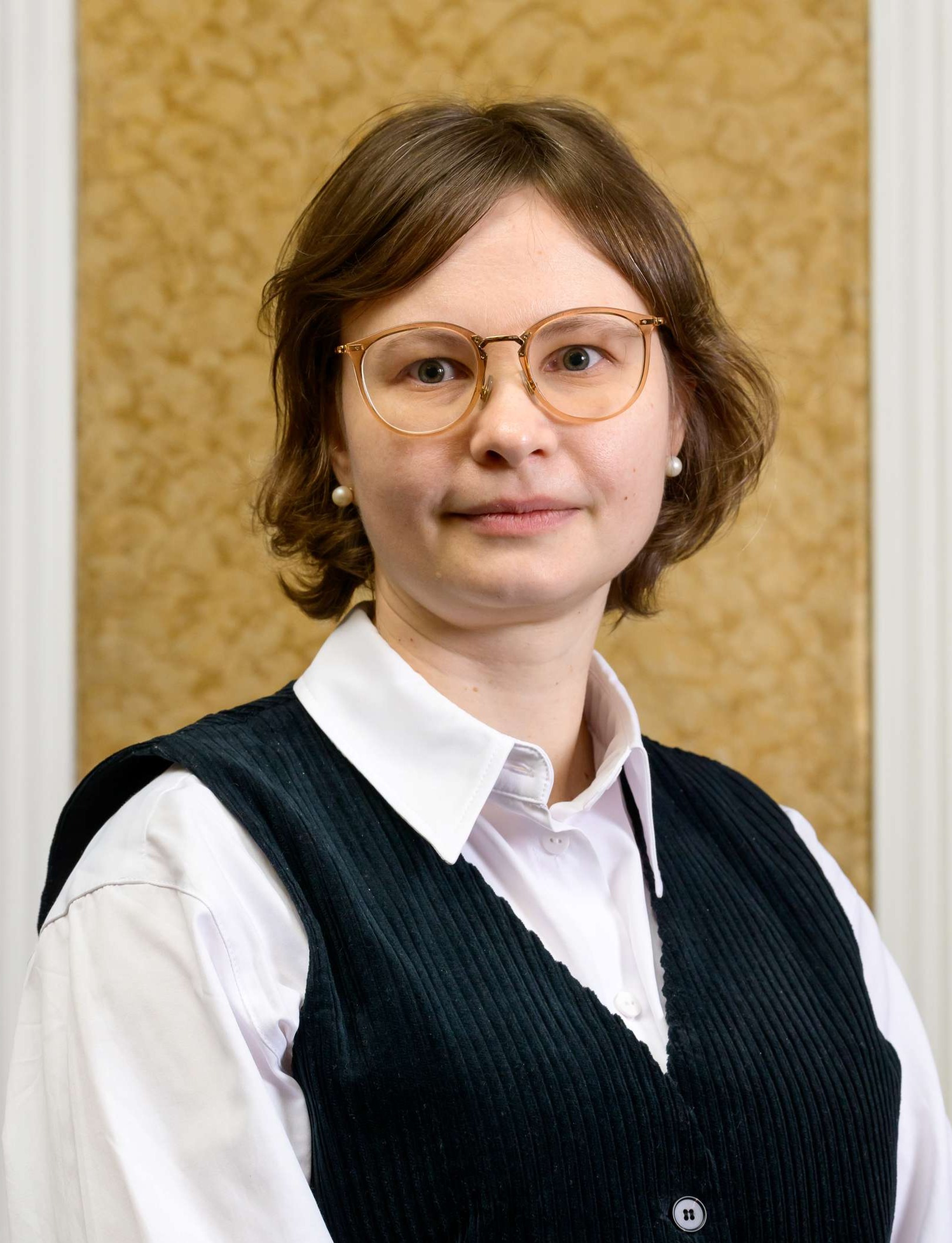
Dr Ievgeniia Ivanova
Philosopher from Odesa (Ukraine); Honorary Fellow of the University of Aberdeen (UK) & University of Stirling (UK)
Project: Cognitive Simplicity as an Epistemological Condition of Ignorance
During my residency period, I will explore how cognitive simplicity operates as a condition that allows ignorance to persist and replicate itself. Using Kelly’s personal construct theory, Bieri’s research on cognitive complexity, and Uyomov’s parametric general systems theory, I examine how simplified cognitive structures narrow the range of distinctions, weaken sensitivity to nuance, and strengthen reliance on uniform explanatory schemes. These forms of substrative, structural and conceptual simplicity create patterns of perception that favour ideological reduction, discourage engagement with contradiction, and limit the possibility of conceptual expansion. In this account, ignorance is sustained not solely by social forces but by an impaired capacity to process complexity.
Residency Period: February 1st – 13th, 2026
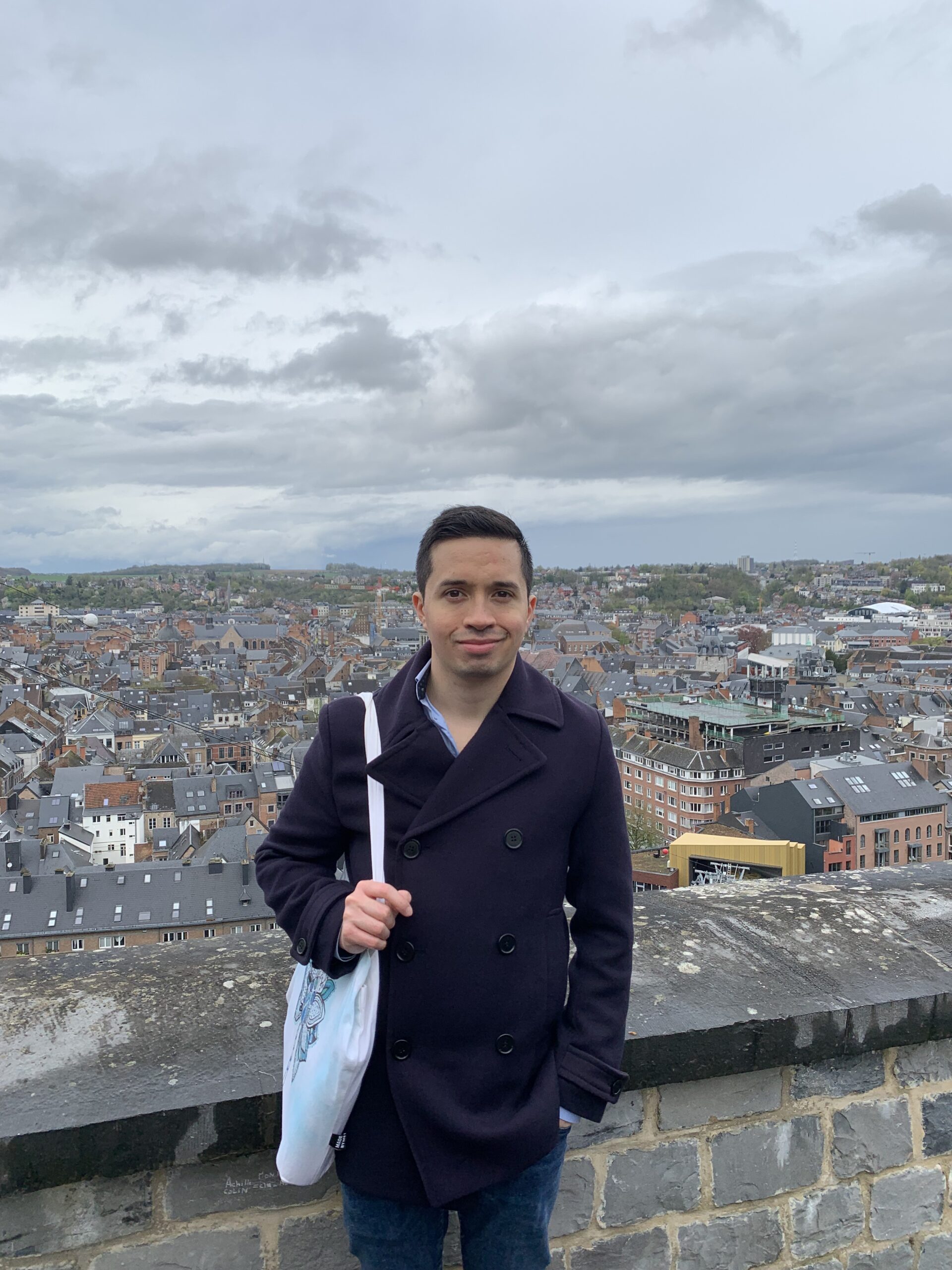
Sebastian Cabezas
University of Tübingen, Germany
Project: Kant on the Relation between Freedom and Morality
The project to be carried out during my residency scholarship in Susimetsa Philosophicum is concerned with Kant’s theory of freedom and is located at the intersection between theoretical and practical philosophy. In my research, I want to explore the question of whether Kant’s view is able to give us an account of freedom which is so broad as to include immorality. According to a long-standing, well-known tradition of Kant interpretation, Kant’s account of freedom is deficient in that it can only make sense of moral actions as free actions. The reciprocal relationship he establishes between a free will and a will subject to the moral law has given rise to the criticism according to which actions which are not in accord with the moral law are eo ipso unfree actions. I take issue with this interpretation line and would like to provide a reading of Kant’s moral philosophy according to which the intimate relation between freedom and morality does not imply the unfreedom of immoral actions.
Residency Period: February 8th – 20th, 2026
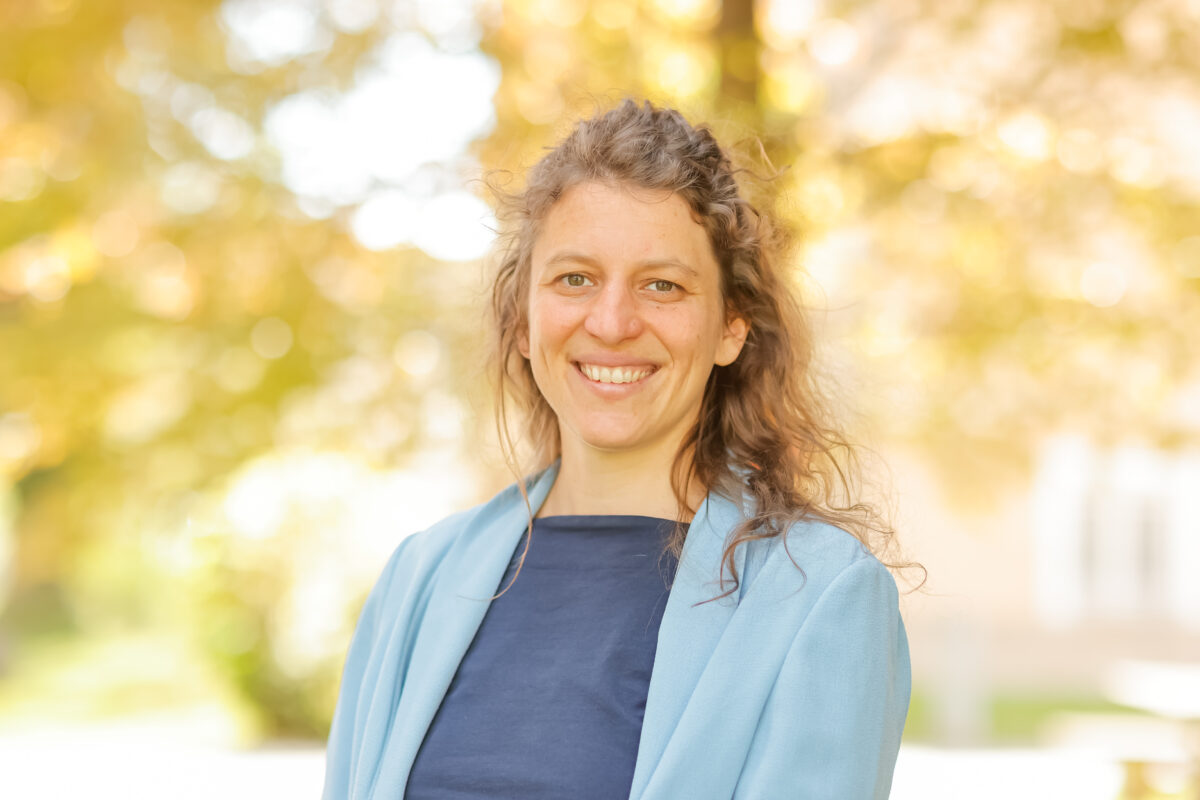
Caroline Hammer
Dipl. Ing. Caroline Hammer, MA – Project assistant at the Department for Systematic Theology and Liturgical Studies, University of Graz
Project: Reproductive Justice and the Use of Assisted Reproductive Technologies Through the Lense of Applied Ethics / Bioethics
Caroline Hammer is a biotechnologist and ethicist. She works on reproductive justice and the use of assisted reproductive technologies. One key point of reproductive justice (defined by Sollinger & Ross) consists in the right to have a child. In her dissertation Caroline asks what this right to have a child implies for the use of reproductive technologies. Should all technologies be allowed that assist people in having children that otherwise could not? Or are some (ethical) limits that should be respected and implemented – and if so based on what values? Special focus is laid on queer and trans reproduction as within this context reproduction only becomes an option through the rise of reproductive technologies and therefore representing a special dependency on them. How to deal with this dependency in the context of reproductive justice in a responsible way is a further key aspect of the dissertation. Three reproductive technologies that challenge the paradigms of reproduction so far are focused on to elaborate on these questions: uterustransplantation, in-vitro-gametogenesis and ectogenesis. With this dissertation Caroline hopes to be able to fuel the discourse around a just and responsible use of these emerging technologies and revealing important orientational questions on reproduction in general that would need to be tackled by society as a whole.
Residency Period: March 1st – 15th, 2026
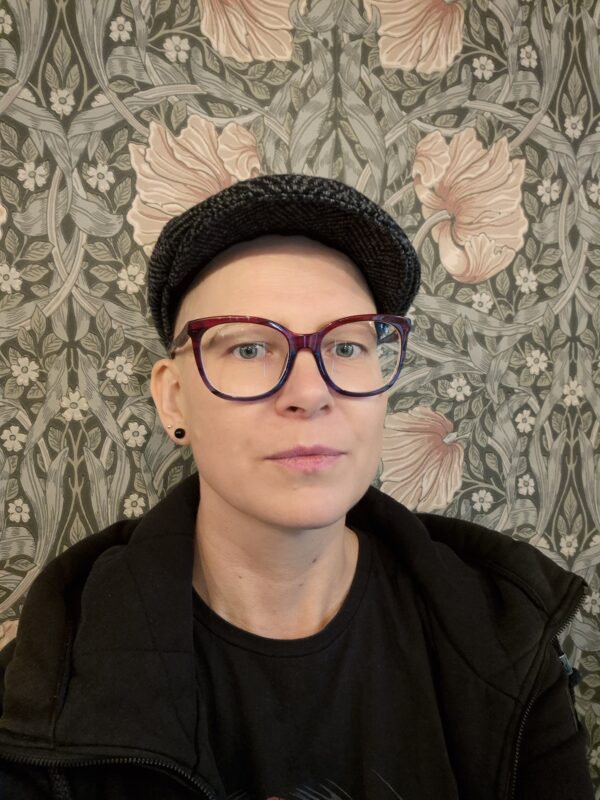
Dr. Maria Anna Robaszkiewicz
Research Fellow, University of Yväskylä, Finland
Project: (Inter)Subjectivity and Movement: A Contribution to the Phenomenology of Migration
During my residency at Susimetsa Philosophicum, I am developing my project on the phenomenology of migration—an emerging research field within political phenomenology. As a corrective complement to the dominant current in international philosophical debates on migration, namely analytical migration ethics, the phenomenology of migration unfolds approaches to reflecting on migration experiences: belonging, migrant movement, the linguistic and broader communicative challenges associated with migration, the affective dimensions of migration, future models of community, and other existential dimensions of migrating.
My work at Susimetsa Philosophicum focuses specifically on migration-related essays by phenomenologists who, as Jews, were forced to flee Germany and Austria in the 1930s and early 1940s (Hannah Arendt, Alfred Schütz, Günther Anders, and the writer Jean Améry), and on the contemporary relevance of their experiences and observations.
Residency Period: March 10th – 27th, 2026
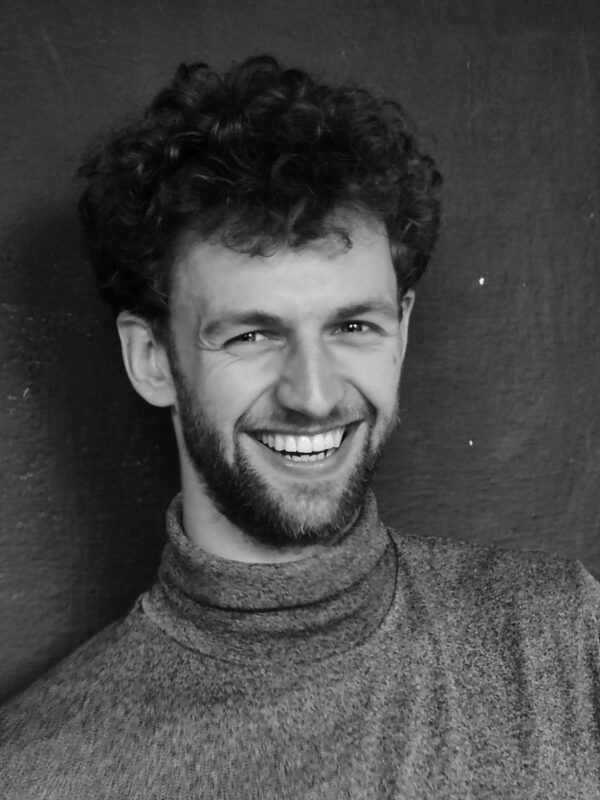
Jan Kohler
PhD Candidate and Research Fellow at GRK 2638 „Critique, Normativity, Change“ at Freie Universität Berlin
Project: The Nature of Right. An Ecological Critique of Right
The research project aims to investigate the relationship of modern right to external nature. Based on the contemporarily debated question concerning the status of natural entities in legal orders worldwide, the project discusses the thesis that the form of modern right contains a specific relation to external nature. As realization of a conception of freedom essentially opposed to nature, domination of nature is not accidental to modern right but engraved in its very form.
In this project, this specific relation to nature is shown to be essential to Kant’s Doctrine of Right, before developing a reading of Hegel’s Philosophy of Right as its critical explication. Following this account of the relationship between Kant’s Doctrine of Right and Hegel’s Abstract Right, the question will be raised as to the extent to which Hegel’s Philosophy of Right itself contains approaches to overcoming a form of right based on the domination of nature.
Residency Period: March 10th – 27th, 2026

John-Stewart Gordon
Adjunct Full Professor (DP Applied Informatics) & Chief Researcher (Full Professor equivalent) at Faculty of Social Sciences, Arts and Humanities, Kaunas University of Technology, Lithuania
Project: The Concept of Interest in Moral Status Ascriptions – A Reevaluation
This paper challenges the Standard View of Moral Status Ascriptions (SMSA), which grounds moral status in entities’ “interests.” While influential in bioethics and animal ethics, I argue that “interest”—a concept requiring higher-order reasoning and self-awareness—is conceptually inadequate when applied to non-human animals, risking category mistakes and anthropomorphism. Drawing on Jeff McMahan’s notion of intermediate moral status, I propose that beings without higher-order reasoning deserve moral consideration through sentience and prudential value rather than interests. This distinction maintains protections for vulnerable humans while avoiding conceptual confusion. By sharpening the vocabulary between interests, prudential value, sentience, and sapience, the revised account contributes to moral philosophy more broadly, with implications for bioethics, environmental ethics, and the philosophy of personhood.
Residency Period: March 10th – 27th, 2026
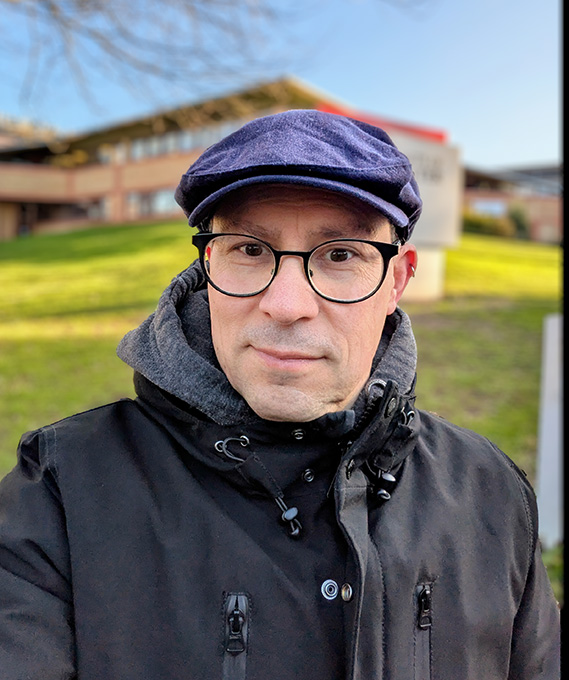
Dr. Steve Cooke
Associate Professor of Political Theory, University of Leicester
Project: Valuing Animals
During my stay, I will work an account of what makes humans valuable and what that value requires of us. My aim will be to establish whether attempts to draw special distinctions between humanity and other sentient beings succeed. Part of this project will be to determine what sort of attitudes and responses are demanded by the special value that all living, feeling beings possess. Alongside this, I will explore what moral judgments about the value of sentient life require of us. For example, if nonhuman animals are owed much greater moral consideration than most believe then billions of people may be complicit in wide-scale serious wrongs. At Susimetsa, I will consider two connected puzzles. First, whether and when individuals are blameworthy when they act upon mistaken moral beliefs about the moral status of nonhuman animals. Second, whether animal rights activists can remain true to their ethical commitments whilst maintaining relationships with those who do not share them.
Residency Period: March 10th – 23rd, 2026

Christos Kalpakidis
Doctoral researcher in Philosophy, University of Bonn
Project: The Contingency of Death: Sartre’s Philosophy of Freedom in a Neo Epicurean Key
This project examines Jean-Paul Sartre’s understanding of death in order to rethink the relationship between freedom, finitude, and human self determination. Against the Heideggerian view that finitude defines the structure of existence, Sartre argues that death is an external event that interrupts life rather than shaping its inner meaning. My research develops the historical depth of Sartre’s view by placing him in dialogue with Epicurus and Spinoza—two thinkers who foreground life, agency, and joyful activity over fear of mortality. By drawing these traditions together, the project aims to reposition Sartre as a philosopher of immanence and affirmation, rather than anxiety or despair. The residency will allow me to complete a paper on this issue and to explore possible connections with Theda Rehbock’s reflections on autonomy and the ethical significance of life under conditions of vulnerability.
Residency Period: March 15th – March 27th, 2026


Dr. Anna-Eva Nebowsky (University of Oldenburg, Department of Health Services Research,
Division of Prevention and Rehabilitation Research)
Matthias Hauer, M.A. (University of Oldenburg, Department of Health Services Research,
Division of Ethics in Medicine)
Project: Morality in informal concepts of care in German live-in care arrangements
During our residency at Susimetsa, we will work on a joint publication that explores the normative, emotional and moral foundations of informal care concepts in German live-in dementia care arrangements. Live-in care, in which a migrant caregiver lives together with a person in need of care, is a major topic for the future of care in Germany. With rising need for dementia care, it has become a third pillar of the care system. However, this model raises important ethical concerns regarding good care, fairness and the distribution of responsibilities. Our focus lies particularly on how moral concepts such as autonomy and fairness are interpreted and enacted within everyday care arrangements.
What informal concepts of care do family members, live-in carers, and people with dementia draw upon in everyday interaction? How are responsibilities and moral boundaries negotiated in everyday life? To explore these questions, we will draw on ethnographic data from the research project TriaDe, which investigates the lived realities of live-in dementia care from multiple perspectives.
Residency Period: March 23rd – April 2nd, 2026
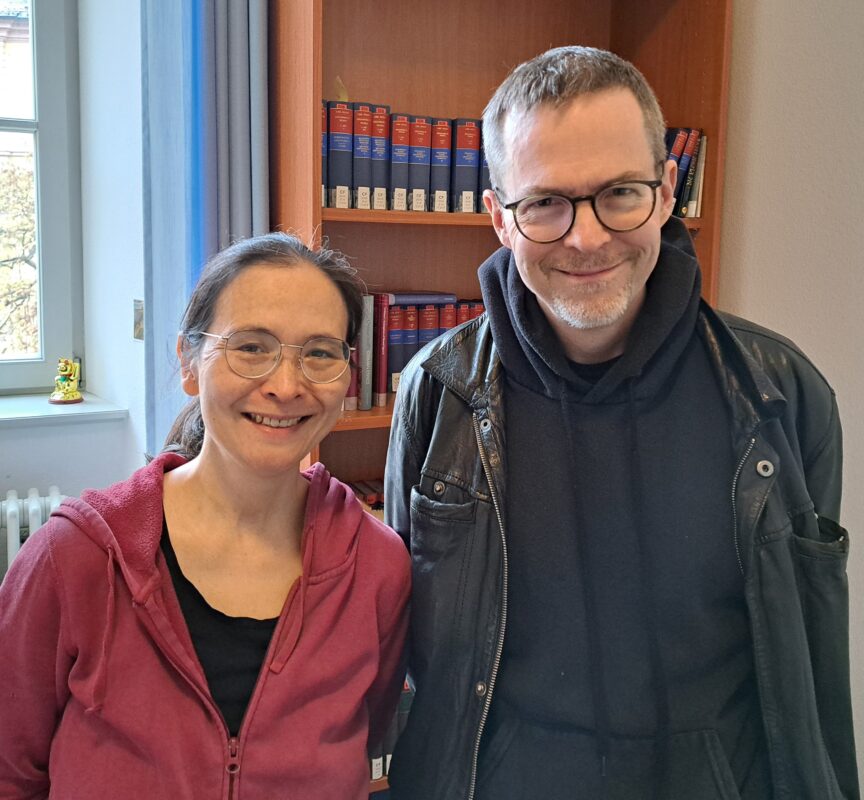
Sonja Schierbaum & Jon Bornholdt
Sonja Schierbaum from University of Würzburg & Jon Bornholdt from University of Würzburg
Project: Acting in a Contingent World: Probability and Moral certainty in early German Enlightenmentability as a new principle of biomedical ethics
We intend to use the fellowship to develop our applications for further research projects based on our current work on practical reasons before Kant (1720–1780). The overall topic derives from the fact that, in the early German Enlightenment, although many of the traditional metaphysical assumptions were no longer regarded as absolutely or demonstratively certain, they were still needed in many areas—such as ethics—as grounding assumptions. The loss of demonstrative certainty thus called for the development of a new kind of certainty based on probability and probable cognition, namely moral certainty. Our aim is to provide a more comprehensive picture of how philosophers in the early German Enlightenment conceived of the requirements for practical deliberation as a basis for moral action in a world that no longer admitted absolute certainty and therefore required new ways of securing the possibility of morally evaluable action.
Residency Period: March 30th – April 10th, 2026
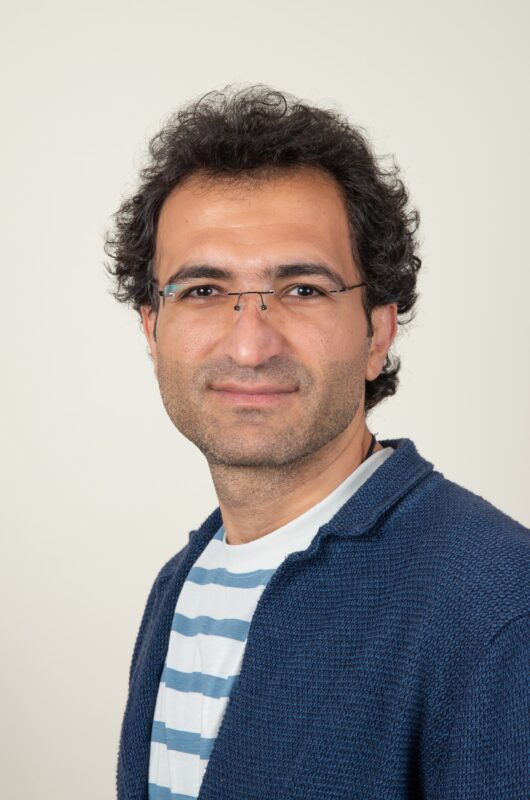
Dilan Qadir
PEN Canada and Vancouver Community College
Project: Narrative Ethics in Exile: Autonomy, Dignity, and the Good Life
During the residency, I will develop a philosophical-literary essay and narrative fragments that explore how autonomy, dignity, emotional life, and the pursuit of a good life are negotiated under conditions of displacement. Drawing on the lived experiences of refugees and immigrants alongside thinkers such as Arendt and Weil, I intend to examine how uprooted individuals sustain moral agency and meaning in shifting cultural and political landscapes. Through an experimental blend of storytelling and philosophical reflection, I aim to illuminate the ethical and emotional dimensions of exile while contributing to contemporary conversations on human dignity and moral responsibility.
Residency Period: March 30th – April 10th, 2026

Rebin M. Ameen
Centre for Ethics as Study in Human Value, University of Pardubice
Project: Pyrrhonian Scepticism as a Way of Life: In What Sense?
Pyrrhonian scepticism presents itself as a way of life (agōgē, ἀγωγή), characterised by ongoing investigative practice. However, scholarly interpretations have varied between reading it primarily as either an epistemological project concerned with the limits of knowledge or as an ethical project oriented toward achieving tranquillity, undisturbance (ataraxia, ἀταραξία), with those who emphasise the latter often assimilating Pyrrhonism to the standard dogmatic ethical structure prevalent in ancient Greek philosophy, wherein determinate beliefs about the good prescribe a corresponding form of life. Yet this assimilation risks obscuring what may be distinctive about Pyrrhonian practice: its emergence from belief-based disturbance and its maintenance through reactive investigation rather than through commitment to the dominant ethical structure. During my residency at Susimetsa Philosophicum, I will develop a chapter of my thesis addressing whether Pyrrhonian scepticism can genuinely be understood as a way of life and, if so, in what sense—specifically, whether it constitutes a philosophically coherent alternative to dogmatic ethical structure or whether it inevitably collapses into a variant of the very structures it purports to avoid. This inquiry requires careful attention to the relationship between the sceptic’s investigative practice, the fortuitous emergence of tranquillity, and the ongoing maintenance of suspension of judgment in response to renewed dogmatic challenge.
Residency Period: March 30th – April 10th, 2026
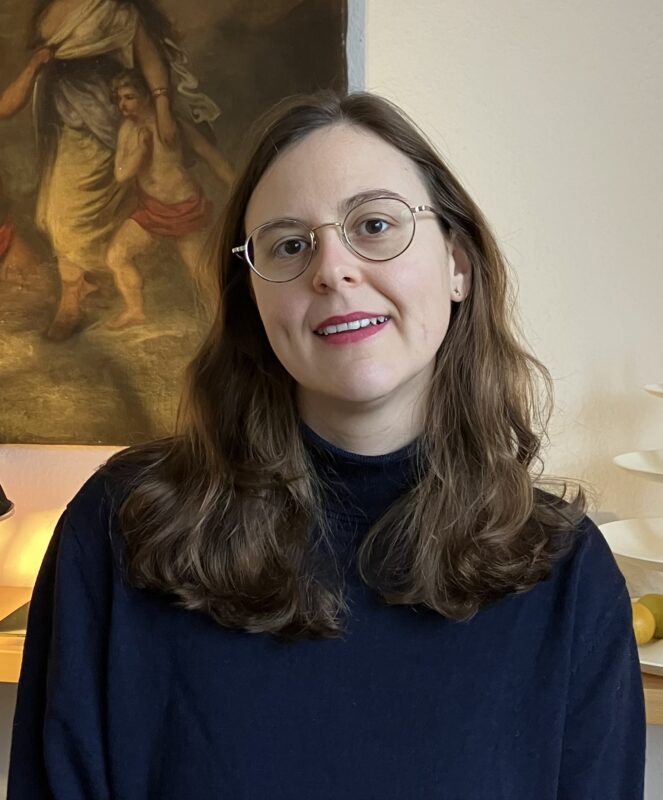
Hannah Sabrina Hübner
Goethe University Frankfurt
Project: The experience of redemption: Political theology following Walter Benjamin and Franz
Rosenzweig
In the face of seemingly intractable crises, a philosophical response to the resulting sense of
powerlessness is of utmost importance. My current project seeks to address this need by
analyzing the metaphysical concept of messianic redemption as presented in the works of
Walter Benjamin and Franz Rosenzweig. I believe the political theology of both Benjamin and
Rosenzweig has the potential to provide new sources of political imagination because, for these
authors, salvation does not occur to the human world from the outside. Rather, humanity must
contribute to, or at least refrain from preventing, the coming of the Messiah, even though
salvation remains unavailable and can never become an intentional goal in Benjamin and
Rosenzweig. This human contribution to the Messianic coming differs from traditional
understandings of praxis in practical philosophy because it is both active and passive
simultaneously.
Residency Period: April 12th – 24th, 2026

Associate Professor Naira Mkrtchyan, PhD
Yerevan State University (Armenia)
Project: Pluralism, Particularism, and Translation: How Walzer Paves a Way Toward Normative Universality
The topic of normative universality has long been at the center of debates in ethics and political philosophy. And the issues of what ensures it or how to achieve it, given the particularities of the social and cultural worlds, have provoked a number of approaches. One such approach is proposed by the communitarian thinker Michael Walzer, who stresses the idea of translation for achieving a form of normative universality, starting from particularism and pluralism. My research focuses on not only the way he proposes but also on whether this enterprise can succeed and what obstacles are expected on the way to normative universality. The angle of examination implies a critical approach to Walzer’s understanding, which will help to find out its novelties, achievements, and failures, bearing in mind the historical background against which his ideas were developed.
Residency Period: April 12th – 24th, 2026
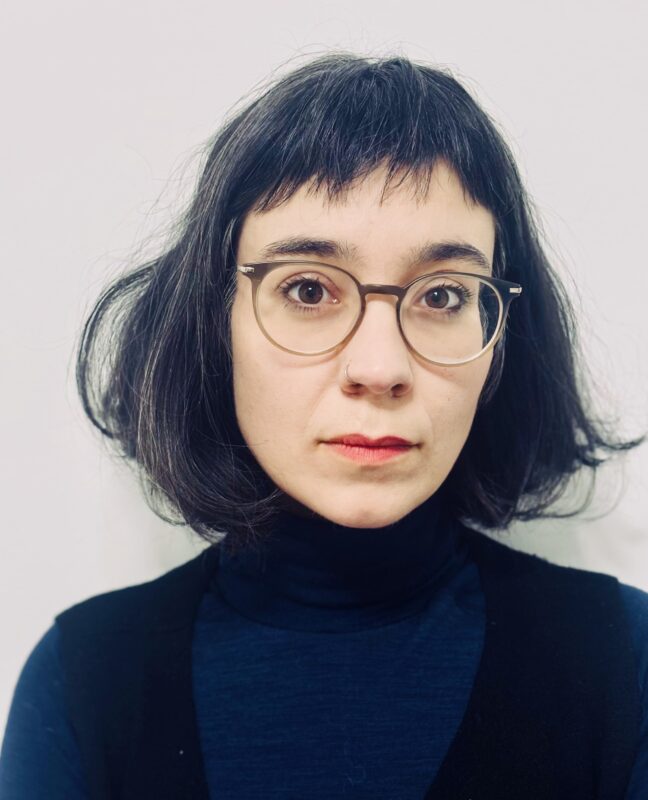
Anita Watzel
Martin-Luther-Universität Halle-Wittenberg
Project: Concrete Subjectivity: Narrative Self-Constitution and Its Foundations in Self-Consciousness
In my thesis entitled Concrete Subjectivity I inquire into how subjectivity can be understood not only in abstract or structural terms but also acknowledged and described in its lived manifestation.
The core of my project lies in a critical engagement with narrative theories of self-constitution. Thinkers such as Wilhelm Schapp, Paul Ricoeur, Charles Taylor, and more recently Marya Schechtman have highlighted the importance of narrative self-representations in constituting autobiographical self-understanding, that is, the understanding of oneself from a diachronic perspective. Even as they oppose reductionist conceptions of the self, narrative approaches still refrain from endorsing a substance theory or from positing an invariant subject core. Rather, they seek a middle path which regards individuals as active agents who exercise their reflective capacities in shaping their self-conception, relating and integrating otherwise fragmented experiences into a narratively structured unity. Thus, in regarding the self as an achievement—based on continual acts of evaluation aimed at the self-attribution or acknowledgment of goals, values, and hence, indirectly, of character traits—narrative approaches to the self are able to accommodate a processual dimension within the concept of selfhood. At the same time, these accounts underscore the practical significance of an individual’s unique perspective, in particular its necessity for grounding a form of self-concern with immediate implications for action. For all their strengths, narrative theories fail to account for the less complex, basic forms of self-relation that make such narrative self-constitution possible in the first place.
My work seeks to address this gap: I argue that narrative self-constitution, and the distinct type of self-relation it corresponds to, presupposes a prior dimension of self-consciousness—a pre-reflective awareness of oneself that is not merely passive in character, but bears a form of mineness inherently connected to a sense of agency. During my stay at Susimetsa Philosophicum, I intend to concentrate on a crucial chapter of my dissertation that develops this argument.
Residency Period: April 12th – 24th, 2026

Pierre Cassou-Noguès
Professor, University Paris 8 (France), Senior member of the Institut Universitaire de France
Project: Uncanny seashores
The environmental crisis gives a new uncanniness to coastal landscapes once domesticated by tourism. It also calls for a different writing of the uncanny — one that emphasizes bodies rather than spirits: wastes instead of ghosts, daydreams instead of stories. I am interested in the margins of landscapes and in those of philosophy, margins which I try to conceptualized in fictions as daydreams, “rêveries” as Bachelard used the term. In the spring of 2025, I traveled the French and Belgian Atlantic coast, from Biarritz to Ostend, on a bamboo bicycle I had built myself. My aim was to put into movement these reveries and document in this perspective the state of the coastline at these pivotal times.
I am now exploring other seashores.
Residency Period: April 12th – 24th, 2026
